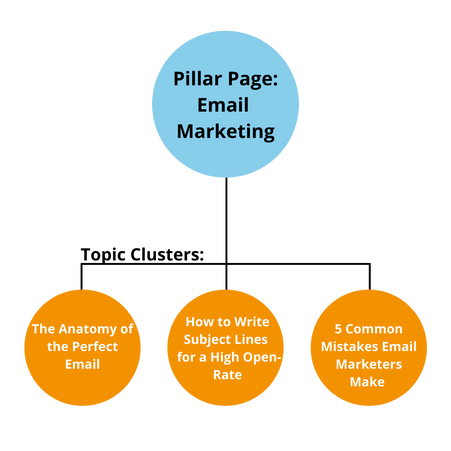How the Pandemic Has Impacted Marketing Strategies for 2021
By now, we’re all well aware that the pandemic shook up the entire marketing industry and caused budget cuts, event cancellations, and in extreme cases, it even caused employee layoffs. In the middle of 2020, almost half of CMOs (44%) faced midyear budget cuts as a direct result of COVID-19. However, as the world begins to pull itself out of the recent economic recession, the outlook for marketing departments’ success in 2021 and beyond is hopeful.
According to Gartner, 73% of CMOs expect the business and economic climate to have a positive impact over the next two years and expect their marketing spend to increase in 2021 and 2022. So what does this mean for marketing strategies? The global pandemic impacted and shifted marketing plans for not only this year but for many years to come. In this article, we’re breaking down the critical changes and strategies marketers must make in 2021 to effectively accomplish their goals while achieving a positive ROI.
Outsourcing Marketing Initiatives is on the Rise
Even before the pandemic, 59% of B2B companies outsourced their marketing departments. Outsourcing marketing efforts can save companies large sums of money by not having to pay for full-time marketers’ salaries and benefits like healthcare and PTO. As the pandemic required companies to make changes to their marketing budgets, 23% of CMOs relied more on external agencies to execute projects throughout the toughest months of last year.
But with a steady increase in the health of the economy, will CMOs be more likely to hire in-office marketers, will outsourced marketing agencies continue to gain traction, or will companies utilize both in-house and outsourced marketing departments? Outsourcing marketing tasks to agencies has proven to supplement an in-house marketing team’s efforts and efficiently work to create effective marketing campaigns and strategies. According to a recent Skyword survey, 35% of marketers outsource at least half of their content creation, and an additional 8% plan to use more external resources over the next 1-2 years.
Essentially, outsourcing marketing, whether solely external or working alongside the in-house marketing department, is becoming increasingly popular and will no doubt be included in yearly marketing budgets for the foreseeable future.
Where Will Marketers Spend Their Budgets in 2021?
Within the past 18 months, more people have been spending time online than ever before. In fact, global online content consumption doubled in 2020. So it’s no surprise that marketing budgets will be mostly spent on digital media versus any other medium. In order to reach your target audience, you need to create a strong presence and meet your ideal customer where they already are — online.
Digital Marketing
The world was already shifting to prioritize digital marketing before the pandemic. However, the effects of COVID-19 left marketers with little choice but to invest heavily in digital marketing initiatives as trade shows and live events were canceled across the board. In 2020, digital marketing accounted for almost 80% of marketing channel budgets across paid, owned, and earned media channels. This number is expected to increase or stay the same in 2021 with the biggest growth opportunities relying on inbound content marketing.
Inbound Marketing
HubSpot defines inbound marketing as “a business methodology that attracts customers by creating valuable content and experiences tailored to them — inbound marketing forms connections they [prospects] are looking for and solves problems they already have.”
To execute the inbound marketing methodology, marketers must focus on strategies like understanding and utilizing SEO, adding a call to action on landing pages, effectively practicing lead nurturing tactics through email marketing, and overall, creating valuable content that directly targets leads. All content needs to provide valuable information about how your product or service can benefit your buyers to encourage lead-to-customer conversions.
Content Marketing
The term “content” is very broad and can have a multitude of definitions. For instance, a piece of content can be anything from a blog post, to a downloadable PDF, or a pre-recorded webinar. As defined by HubSpot, content marketing is the process of planning, creating, distributing, sharing, and publishing content to reach your target audience. It can boost factors like brand awareness, sales, reach, interactions, and loyalty.
Since in-person events like trade shows were canceled throughout 2020 and for the foreseeable future, marketers needed to restructure their budget and come up with innovative ways to speak to their customers. Just about 43% of B2B marketers surveyed by B2B Marketing Zone said they reallocated live event budgets to content creation in 2020. Through educational and informational online content, prospects are able to learn about your business and offerings wherever they are in the world. Another great opportunity is to host live webinars or podcasts that allow attendees to ask questions and interact with members of your team, virtually.
With digital marketing being the driving force behind marketing initiatives, which channels should marketers expect to utilize to effectively generate leads in 2021?
Marketing Channels We Predict Will Be Prioritized in 2021
While most of the world is experiencing stagnation with stay-at-home orders, social distancing, and more COVID-19 restrictions, the digital marketing world is evolving almost daily. For example, social media algorithms are updating regularly and Google continuously switches up how search engines rank websites. Because of these frequent dynamic changes, digital marketers need to be able to quickly adapt to rapidly changing rules and regulations. Let’s go through our predictions for the most influential marketing channels all marketers need to prioritize this year.
Email Marketing
Tried and true email marketing is still one of the best ways to effectively achieve your marketing goals in 2021 and for years to come. Statista even predicts that global email usage will grow to 4.48 billion users in 2024! With so many consumers using email as a means of communicating with brands, email marketing is one of the best ways to nurture leads and develop a lasting relationship with each individual contact.
Email marketing is a necessity for businesses that want to efficiently and effectively reach their target audience. With the use of segmented lists, marketers can directly target prospects and customers with tailored content relating to where they are in their buyer’s journey. For example, if a prospect is in the decision stage, receiving an email that includes a discount might encourage them to make their purchase. By gaining these insights via email marketing, marketers can better serve their customers with relevant content directly to their inbox.
To learn more about email marketing best practices, take a look at our blog, 5 Common Mistakes Email Marketers Make Before Reading This.
SEO
SEO will continue to play a major role in marketing efforts in 2021. But best practices for SEO are changing. The latest innovation you should consider incorporating into your SEO strategy in 2021 is to adopt the HubSpot Topic Cluster Model. Topic clusters (specific to HubSpot users) are a collection of blogs that describe in-depth information regarding a specific aspect of a broader topic. These blogs each hyperlink to a pillar page that details a broad overview of the main topic. This can sound a little confusing but the chart below should help you reach an understanding.

Topic clusters help share domain authority of the pillar page which increases the ranking in search engines. For example, each blog post within a cluster begins to rank for the specific keywords they’re written for and in turn, the hyperlinked pillar page begins to gain authority and thus, begins to rank high in search engine results as well.
The greater authority your webpages have, the greater credibility your brand has!
Social Media Marketing
Currently, over 3.6 billion people are using social media across the globe and that number is projected to increase to almost 4.41 billion in 2025. What better way to meet your customers than where they already are like Facebook, Instagram, Twitter, and LinkedIn? Social media marketing enables marketers to directly target their ideal customers at any time. With an expected compound annual growth rate of 17% from 2016 to 2021, social media marketing is crucial.
However, while it’s important to market your products or services on social media, it’s even more critical that you find which social media platforms target your audience best to drive maximum lead generation. For example, 96% of B2B marketers use LinkedIn for organic content distribution, making it the top most-used platform for content distribution. LinkedIn is the prime location to connect with and reach most major C-level decision-makers.
Inbound marketing pro tip: Sharing helpful resources on social media that encourage people to read your blog or download content from a landing page is a great way to generate high-quality leads.
Word-of-Mouth Marketing
With all the paid advertisements popping up on social media, and really, all over the internet, it’s easy to understand why people have a hard time trusting brands that say “our product is the best of its kind.” According to Edelman, 70% of consumers say that trusting a brand is more important today than ever before. To benefit from word-of-mouth marketing, the two most important goals are to focus on customer reviews and to improve the overall customer experience. This can all be accomplished with content marketing.
Content marketing promotes good advocacy and loyalty, thus resulting in word-of-mouth experiences. Marketers can elevate the customer experience directly through serving up useful content (whether it's a video, podcast episode, guide, etc.) during every stage of the buyer's journey. By delighting your customers with helpful content and exceptional experiences, customers become advocates for your brand and have the desire to share their support and enthusiasm with their friends, family, and social network. Moreover, high-quality pieces of content might even go viral through sharing and word-of-mouth — increasing not only your credibility but brand awareness as well.
Marketing KPIs and How to Track Them Will Take Center Stage
How do you keep track of your marketing efforts? If you haven’t already begun looking at your marketing analytics, you undoubtedly need to in 2021. However, it’s not enough to look back on your yearly, quarterly, or monthly reports without having set goals for each of those milestones.
First, you need to figure out what your goals are and when you want to achieve them. Then, you can set up weekly, monthly, and quarterly KPIs that help you reach your main goal. Using a CRM, Google Analytics, and/or your email marketing software, track the analytics of your KPIs. Are you struggling to hit your KPIs? Are you reaching far beyond your KPIs? Depending on how well or poorly your campaign is performing, KPIs are a great indicator of success and can help you improve upon your campaign to see what’s working and what isn’t working.
It’s one thing to say “we want to generate more leads” but it’s an entirely different thing to say “we want to generate 30% more Marketing Qualified Leads quarter over quarter within a specific persona group.” The latter is more specific and therefore more realistic to actually achieve. It’s easy to get more strangers to fill out your Contact Us web form but if they don’t fall within the defined criteria of what your organization considers an MQL and they aren’t categorized by a recognizable, shared set of buyer persona characteristics then did you really achieve your intended outcome?
According to Gartner, the most valuable metrics to keep an eye on this year are ROI, marketing qualified leads (MQLs), and sales qualified leads (SQLs). We recommend holding quarterly and monthly reviews to make sure you are on track to hitting all your KPIs and evaluating your metrics. Constantly being aware of your marketing analytics enables you to take what’s performing well and expand upon that strategy to enhance customer satisfaction, increase revenue, and grow your business.
Most Desirable Marketing Job Titles for 2021
Even with the pandemic forcing many companies to lay off employees, there are high hopes in 2021 for company and employee growth. We expect to see marketing teams adding the following roles to their roster throughout the course of this year:
Product Marketing Manager
Product marketing managers carry out effective marketing strategies to communicate the features and benefits of new products to customers. Part of their responsibility is to research the customer needs and provide them with valuable and relevant content to create positive customer experiences. Often, PMMs work hand-in-hand with the product manager to shape the product and go-to-market strategy — creating content and collateral, including sales presentations, demos, and competitive write-ups.
Besides developing content, PMMs are expected to build and execute marketing plans for how to leverage public relations, analyst relations, content, demand generation programs, social media, and other marketing channels to establish and grow product demand and awareness.
The top skills a product marketing manager should have in 2021:- Data-driven and meticulously detail-oriented
- Customer-focused
- Skilled at organizing complex requirements and opposing viewpoints to deliver high-impact projects
- Strong writing and presentation skills
- Ability to analyze and interpret data/metrics and use information to make informed decisions
- Ability to effectively convey information to a wide variety of audiences, from executives to customers, suppliers, and partners
“My prediction for 2021 is that PMMs will become more influential than ever before. As companies have had to do more with less, PMMs will be the connector through which sales, product management, and marketing work together more effectively in a data-based way.” – Mary Sheehan, Head of Product Marketing at Adobe Advertising Cloud
Partnership Marketer
Partnership marketing is a collaborative relationship established between two or more firms, allowing each firm to reach their respective business objectives. A partnership marketer works closely with various internal and external teams to develop partnerships that extend the capability of the brand’s products. Alongside the product team, they work to develop a partner strategy based on market trends and the competition. Additionally, partnership marketers are also responsible for creating customer-ready content that explains the value of the partnership and creating joint marketing plans with partners.
The top skills a partnership marketer is required to have in 2021:
- Highly collaborative strong team builder who is customer-centric
- Comfortable in dynamic environments with changing priorities
- Skilled at managing multiple responsibilities while striving to exceed expectations
- Experience executing results-driven partner marketing programs
- Exceptional organizational skills and detail-oriented to effectively manage projects
- Excellent verbal and written communication skills
- Ability to build relationships with a variety of stakeholders both internally and externally
Search Engine Optimization Specialist
As SEO strategies consistently change, marketing teams are in need of SEO specialists that can stay up-to-date with the latest techniques and strategies. According to LinkedIn, this job role has grown 33% year-over-year and is expected to continue on the same trajectory.
SEO specialists are responsible for analyzing data and driving optimization strategies for discovery via search engines. SEO specialists develop content to include keywords or phrases in order to increase traffic to a website while also conducting various test methods in design, layout, and advertising techniques.
The top skills an SEO specialist must have in 2021:
- Understanding of search engine algorithms and ranking methods
- Ability to analyze high volumes of data on a daily basis
- Extensive knowledge of Google Analytics, WordPress, Wix, and other content management systems
- Proficiency in HTML Experience managing and implementing PPC campaigns is a plus
Final Thoughts
Over the past 18 months, marketers have hit the reset button on quite a few initiatives. The pandemic has been a forcing function for reflection and level-setting to pinpoint the most critical components of an effective marketing program. The strategies to focus on in one enterprise might not be the best plan of action to focus on in another.
Marketers across all industries have learned to incorporate a greater message of empathy and understanding through their marketing materials. We don't think that will go away anytime soon, and we're enthusiastic about the future of innovative, creative, and data-driven thinking in the field of marketing!
If you are looking to outsource your marketing efforts or want to gain more information on how these new strategies can maximize your marketing initiatives — request a consultation.
We’re here to help.




